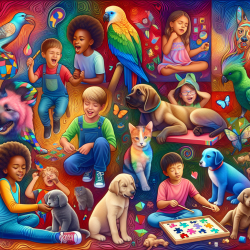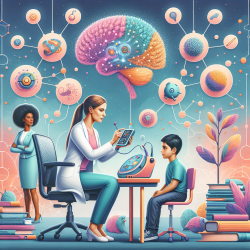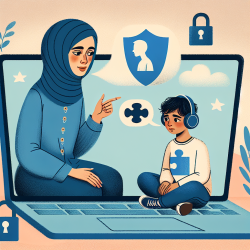Introduction
The bond between children and their companion animals is often considered a source of joy and comfort. Recent research, however, suggests that this relationship might offer more than just emotional support. The study titled Companion animals and child development outcomes: longitudinal and cross-sectional analysis of a UK birth cohort study explores the intricate connections between pet ownership and various developmental outcomes in children. This blog aims to delve into the findings of this research and discuss how practitioners can leverage these insights to enhance child development.
Key Findings of the Study
The research utilized data from approximately 14,000 children in the Avon Longitudinal Study of Parents and Children (ALSPAC). It examined the impact of pet ownership on several developmental outcomes, including emotional health, behavioral development, cognitive development, language development, and educational attainment.
- Social and Language Development: Pet ownership, particularly dogs and other miscellaneous pets, was associated with higher prosocial behavior scores and enhanced language development. At age 3, owning a dog was linked to higher prosocial behavior scores, and pet ownership at age 5 correlated with improved language development scores.
- Educational Attainment: Contrary to popular belief, pet ownership was associated with lower educational attainment across various subjects and time points. This finding challenges the assumption that pets universally benefit children's cognitive and academic performance.
- Emotional and Behavioral Outcomes: The study found no substantial evidence linking pet ownership to improved emotional health or cognitive outcomes. However, there were associations with increased hyperactivity and conduct problems at certain ages.
Implications for Practitioners
For speech-language pathologists and other child development professionals, these findings offer several implications:
- Focus on Social and Language Skills: Given the positive associations with social interactions and language development, practitioners can incorporate pet-related activities into therapy sessions to foster these skills. Activities might include storytelling about pets, role-playing pet care, or using pets as conversation starters.
- Critical Evaluation of Educational Impact: While pets may enhance certain social skills, practitioners should be cautious about assuming academic benefits. It may be beneficial to explore other supportive educational interventions alongside pet ownership.
- Further Research and Personalization: Encourage further research to understand the nuanced effects of different types of pets on various developmental outcomes. Practitioners should consider individual differences when recommending pet ownership as part of a developmental strategy.
Encouraging Further Research
This study highlights the complexity of the relationship between pet ownership and child development. As practitioners, it's crucial to stay informed about ongoing research and contribute to the body of knowledge through data-driven practices. Consider collaborating with researchers to explore specific questions about how different pets might impact various developmental domains.
To read the original research paper, please follow this link: Companion animals and child development outcomes: longitudinal and cross-sectional analysis of a UK birth cohort study.










